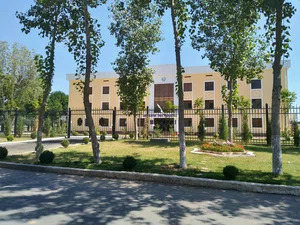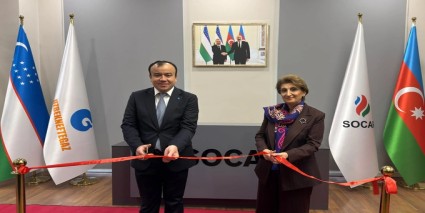The United States and the Republic of Uzbekistan kicked off a national two-day conference on health reforms to end tuberculosis (TB) May 22 in Tashkent. The conference is sponsored by the U.S. Agency for International Development (USAID), the Uzbekistan Ministry of Health (MOH) and the Republican Specialized Scientific and Practical Medical Center for Phthisiology and Pulmonology. It brings together international experts, representatives of the governments from Central Asia, and healthcare providers from across Uzbekistan to share best practices, expertise, and lessons learned from implementing the World Health Organization's (WHO) End-TB Strategy and the Declaration of the United Nations (UN) on Ending TB.
The theme of this year’s national conference, Implementation of the “End TB” Strategy in the Context of Health Reforms in Uzbekistan, demonstrates the growing commitment of the Government of Uzbekistan to reduce and stop the spread of TB through comprehensive reforms. A recent Presidential Decree on Improvement of TB and Pulmonology Services for 2019-2022 and the Uzbekistan National Concept of Healthcare Improvement for 2019-2025 set forth a framework for further development of Uzbekistan’s health system. Conference participants will identify priority actions to achieve the “End TB” Strategy and UN Declaration targets.
Adopted in 2014, the WHO strategy aims to end the global TB epidemic by reducing TB deaths by 95% and new cases by 90% between 2015 and 2035 and ensuring that no family is burdened with catastrophic expenses as a result of TB. In September 2018, the UN General Assembly adopted a declaration to end the TB epidemic globally by 2030. The UN member states pledged to achieve this goal by ensuring successful treatment by 2022 of 40 million people with TB.
For over 20 years, USAID has partnered with Uzbekistan to limit the spread of TB and its drug-resistant forms through more effective and accessible TB prevention, diagnosis, and treatment for all. The current five-year, $7.6 million USAID TB Control Program supports the MOH in implementing the National Tuberculosis Program and works to improve the quality of TB services, renovate laboratories, improve access for patients to TB detection and treatment, train healthcare providers, and provide support for patients and their families.















